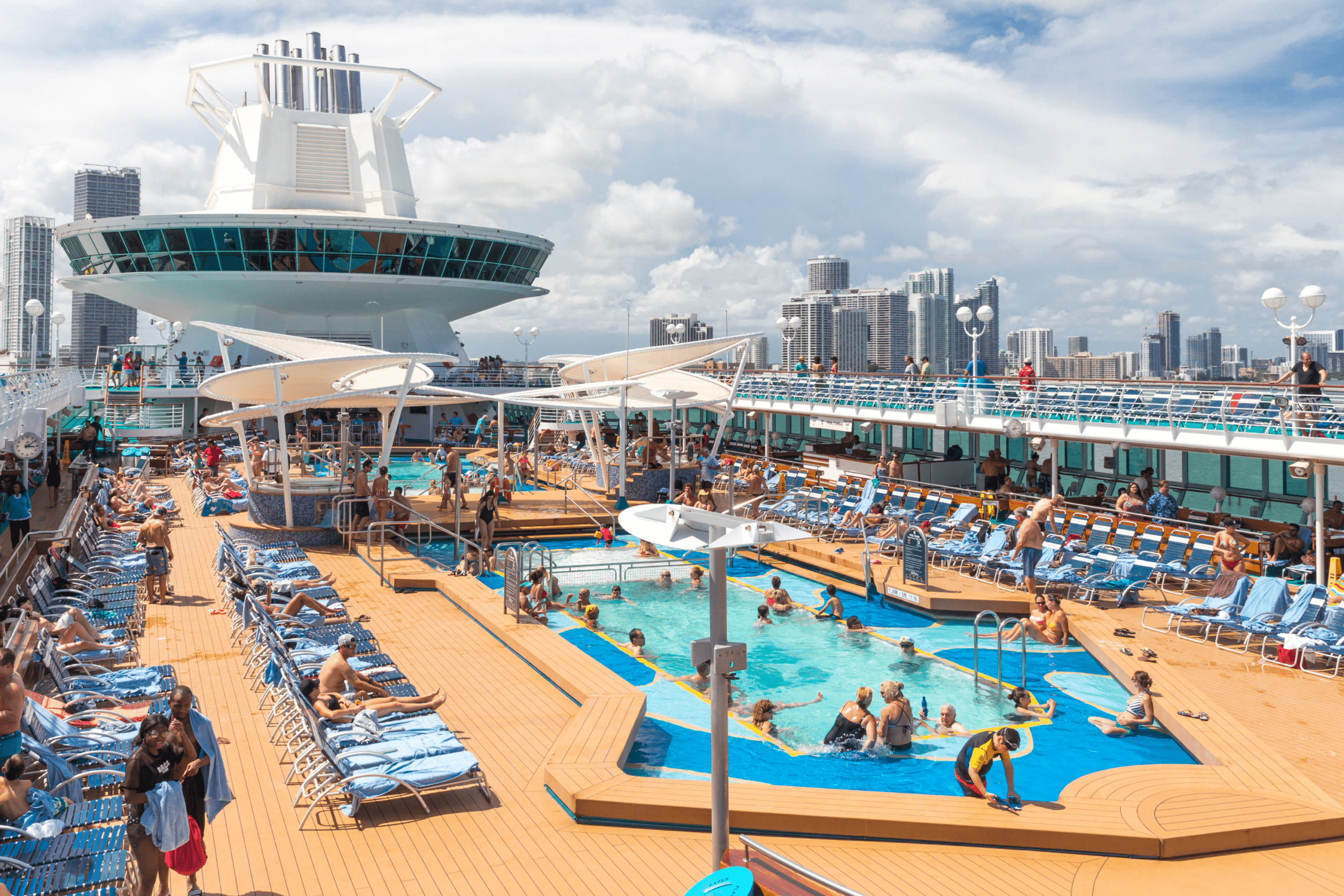Cruise vacations are meant to be relaxing and enjoyable, allowing passengers to explore new destinations while enjoying various dining experiences. However, the close quarters and communal dining environments on cruise ships can sometimes lead to outbreaks of foodborne illnesses.
Recognizing the symptoms of food poisoning and knowing how to report it is crucial to protecting your health and ensuring a safe experience for everyone on board.
Recognizing the Symptoms of Food Poisoning
Food poisoning can occur when food or beverages are consumed contaminated with harmful bacteria, viruses, or toxins. On a cruise ship, where food is often prepared and served in large quantities, the risk of foodborne illness can be higher if proper food safety protocols are not followed.
Common symptoms of food poisoning include:
Nausea and Vomiting
One of the most immediate signs of food poisoning often occurs within hours of consuming contaminated food.
Diarrhea
Persistent diarrhea is a common symptom and can lead to dehydration if not managed properly.
Stomach Cramps
Painful cramps and abdominal discomfort often accompany other symptoms.
Fever and Chills
Food poisoning can sometimes cause a fever, indicating that the body is fighting an infection.
Headache and Muscle Aches
General discomfort, including headaches and muscle pain, can occur alongside gastrointestinal symptoms.
Symptoms can range from mild to severe and typically appear within hours to a few days after consuming contaminated food. Certain groups, such as young children, the elderly, pregnant women, and individuals with weakened immune systems, are more vulnerable to severe complications from food poisoning.
Immediate Steps to Take If You Suspect Food Poisoning on a Cruise
Suppose you begin to experience symptoms of food poisoning while on a cruise. Taking immediate action is crucial. First, seek medical attention. Most cruise ships have medical staff on board who can provide initial treatment for foodborne illnesses. Visit the ship’s medical center, especially if your symptoms are severe or persistent. Early treatment is important to prevent complications like dehydration.
Staying hydrated is also essential. Dehydration is a common risk with food poisoning due to vomiting and diarrhea. Make sure to drink plenty of water or electrolyte-rich fluids to maintain hydration. However, avoid alcohol and caffeine, as they can worsen dehydration.
Limit contact with others to prevent the spread of illness. Avoid close interactions with other passengers and refrain from using communal facilities like pools and hot tubs. This is particularly important if you suspect your illness may be part of a larger outbreak.
Cruise Ship Food Poisoning? Report It – For Everyone’s Safety
Reporting suspected food poisoning is essential for your safety and the well-being of others on the cruise. Start by notifying the ship’s medical staff. When you seek medical care, provide details about the foods you consumed and the timeline of your symptoms. This information can help identify the source of contamination and prevent further cases.
Next, contact the ship’s management or guest services to report your illness. They can initiate an investigation into the source of the contamination and take corrective measures, such as inspecting the kitchen or temporarily closing certain food stations.
It’s also important to document your experience. Keep a record of your symptoms, medical treatment, and any communications with ship personnel. This documentation could be crucial if the situation leads to long-term health issues or if multiple passengers are affected, especially if you decide to pursue legal action.
 Finally, consider reporting the incident to health authorities, such as the Centers for Disease Control and Prevention (CDC) after the cruise. The CDC monitors outbreaks on cruise ships and can conduct investigations if necessary.
Finally, consider reporting the incident to health authorities, such as the Centers for Disease Control and Prevention (CDC) after the cruise. The CDC monitors outbreaks on cruise ships and can conduct investigations if necessary.
If you or someone you love experiences food poisoning on a cruise, it’s important to consider seeking legal help from an experienced attorney. A knowledgeable lawyer can guide you through the process of filing a claim, help you gather necessary evidence, and advocate on your behalf to ensure you receive fair compensation for your medical expenses, lost vacation time, and any long-term health effects. Having legal representation is crucial, especially when dealing with large cruise lines and their insurance companies, as they often have extensive resources to fight claims.
About the Author:
Andrew Winston is the founding partner at the personal injury Law firm, The Winston Law Firm. For over 20 years, he has successfully represented countless people in all personal injury cases, focusing on child injury, legal malpractice, and premises liability. He has been recognized for excellence in representing injured clients by admission to the Million Dollar Advocates Forum and named one of America’s Top 100 High-Stakes Litigators. Mr. Winston is AV Preeminent, Rated by the Martindale-Hubbell for the highest level of professional ethics, enjoys a 10.0 rating by AVVO as a Top Personal Injury Attorney, and has been selected as a Florida Top 100 “Super Lawyer” and Miami Top 100 “Super Lawyer” – an honor reserved for the top 5% of lawyers in the state – was voted to Florida Trend’s ”Legal Elite,” recognized by Expertise as one of the 20 Best Personal Injury Attorneys in Fort Lauderdale and 20 Best Car Accident Lawyers in Fort Lauderdale.







